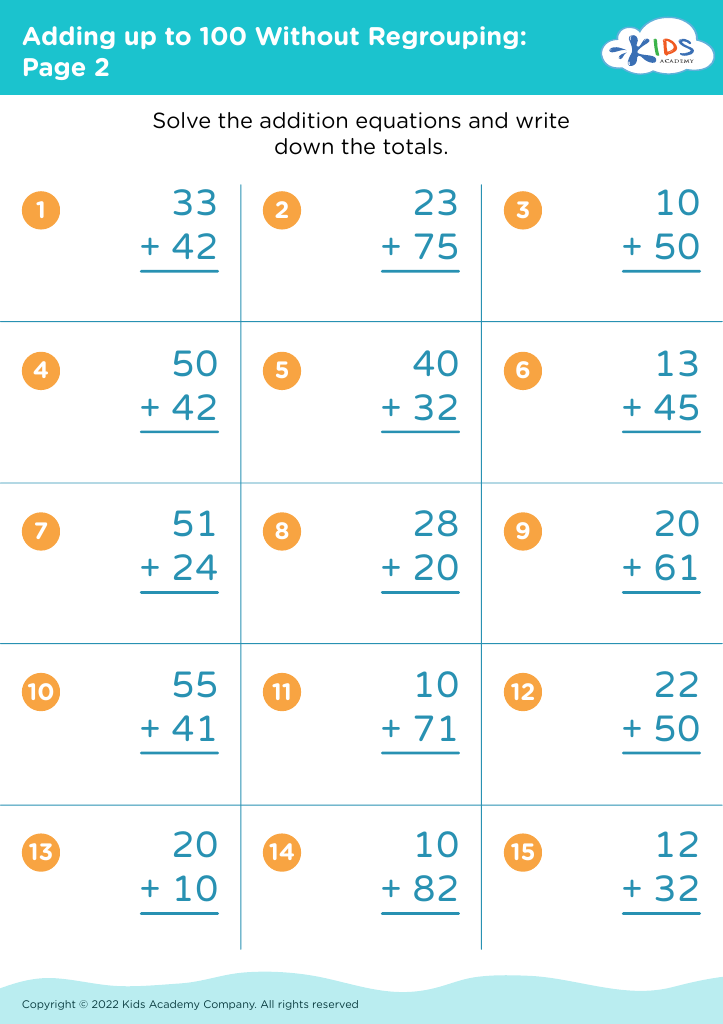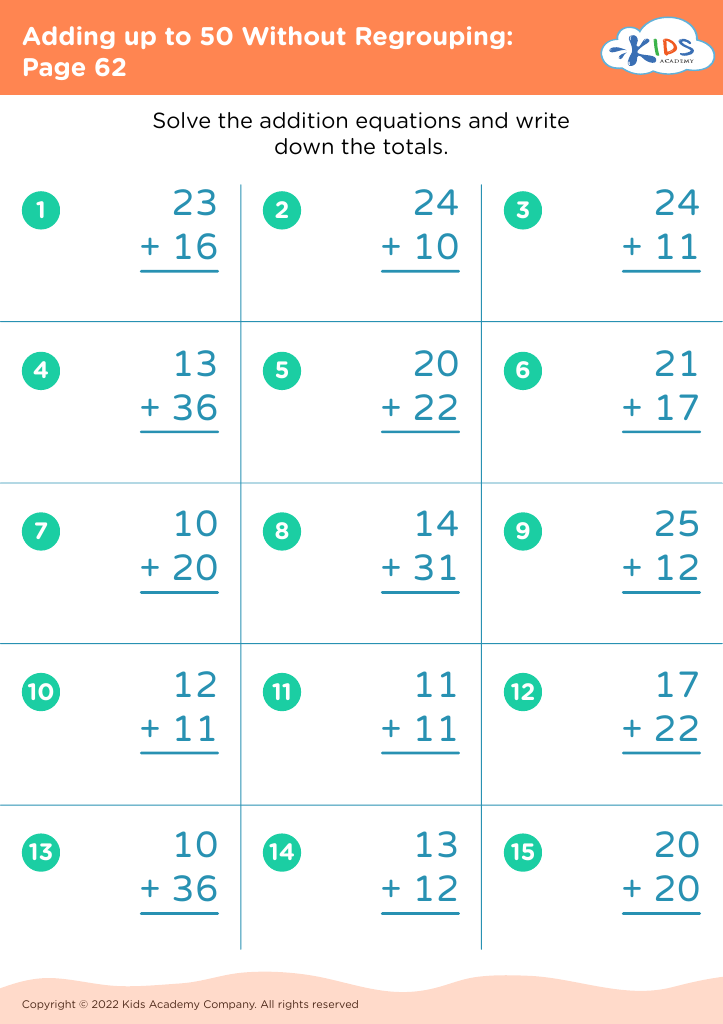Color matching Math Worksheets for Ages 8-9
3 filtered results
-
From - To
Enhance your child's math skills with our engaging Color Matching Math Worksheets for Ages 8-9! Perfectly designed to create an interactive learning experience, these worksheets combine essential math concepts with color matching activities, making learning fun and effective. Children will practice addition, subtraction, multiplication, and division, while improving their problem-solving abilities. As they navigate their way through vivid and exciting challenges, they'll develop a strong foundation in math. Ideal for classroom use or homeschooling, these printable worksheets cater to diverse learning styles, ensuring every child thrives. Dive into a colorful world of math and watch your child's confidence soar!
Color matching math for children aged 8-9 is a vital tool in both engaging students and reinforcing fundamental mathematical concepts. At this developmental stage, many children thrive on visual and interactive learning experiences. Incorporating color matching into math not only makes the learning process more enjoyable but also aids in improved memory retention and understanding.
Firstly, colors act as visual aids that help children differentiate and categorize information more efficiently. For instance, using different colors for various mathematical operations (like red for addition and blue for subtraction) can help students sort and process these functions more clearly.
Secondly, matched with math exercises, color matching can bolster critical thinking and problem-solving skills. It offers a multisensory learning approach, stimulating both visual and cognitive abilities. As kids manipulate colors to solve problems, they develop stronger hand-eye coordination, pattern recognition, and spatial awareness.
Moreover, engaging in color-matching activities cultivates a positive emotional connection to math, reducing anxiety and fostering a love for the subject. This enjoyable, hands-on interaction encourages perseverance and confidence in tackling more complex mathematical problems later on.
In essence, early encouragement of color matching in math can set a solid foundation for future academic success, making learning both fruitful and fun. Parents and teachers should utilize this effective strategy to create a supportive and stimulating educational environment.























